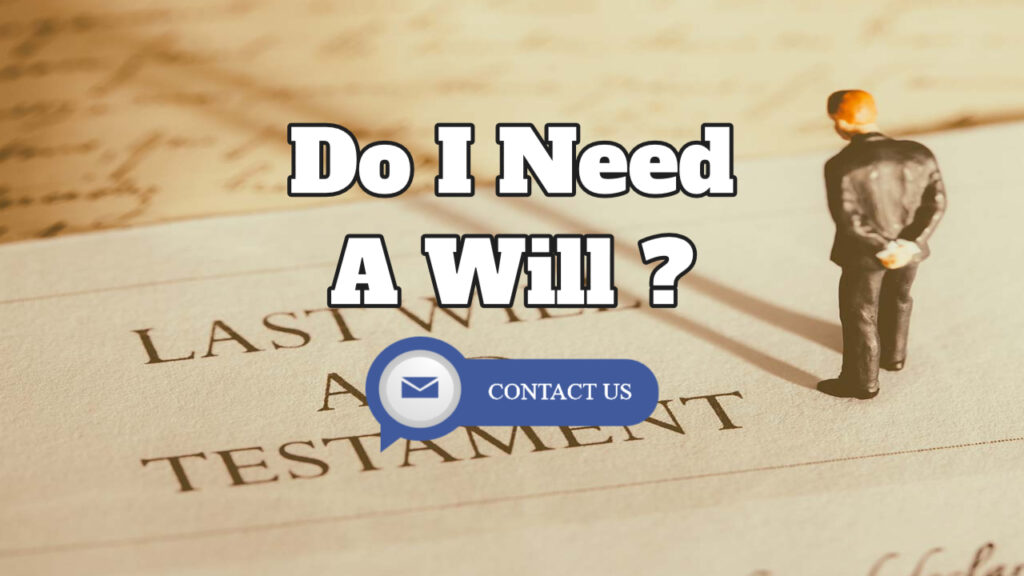Getting a copy of the will when probate has been granted
Estate Planning : When someone dies, the person in control of their estate (for example, money and property) must usually seek approval from the probate court. If there is a will, this authorisation is known as a grant of probate. After probate is granted, the will is held by the probate service, and any member of the public can get a copy.
Will vs. Trust: What’s the Difference?
When most people ponder how to arrange for their family’s future after they die, a will is typically the first option that comes to mind. However, many people are unaware that a will might contain flaws and potentially costly unintended consequences that may affect their family. Last will and testaments and living trusts are the two most frequent ways to pass on your assets and provide for your family after you die. Each distributes the property in accordance with your wishes, but there are major variations that you should consider while establishing your estate plan..
Protect your digital assets
Your assets will now include more than simply money in the bank and tangible goods. Digital accounts and online purchases, such as music, photographs, or websites, are also part of your property and might be lost if not accounted for in your will. Emails and social media accounts are also part of your legacy; do you want the content deleted or safeguarded, and do you need to provide your executor passwords?
Decide how you want to divide your estate
The more intricate your family situation, the more important it is to create an estate strategy. You should have paperwork in place that outline who will be in charge if you become handicapped and how assets will be divided. It will be left to the courts to make a judgement in the absence of these papers. For example, if you are separated but not yet formally divorced when you die, your spouse may still receive your assets unless your estate plans stipulate otherwise.
Then you’ll write down the names of the beneficiaries — the people who will inherit your assets. If your spouse is still living, as previously said, you may leave everything to them. But what happens if neither of you is alive? How are your assets and estate divided?
You might leave an equal proportion or a lump payment to each of your children. You may choose to leave a percentage to charity, as well as specific goods to specific persons, like as the old train set your child always wanted to push around the living room when he was a youngster. Whatever decisions you make, now is the moment to memorialise them.
Writing a will ensures your family’s financial security in the future. If you die without one, the law decides who inherits your possessions, which may result in your estate being split in ways you would not have chosen. Many individuals assume that if they die, their assets will be transferred to their companion immediately. This is not always the case. The only way to ensure that your estate is transferred to the individuals you choose is to write a will.
Should you set up a trust?
The probate court serves numerous purposes. In general, it is meant to monitor the distribution of the estate to qualified beneficiaries, demonstrate the validity of the will, pay any outstanding liabilities and accounts (including taxes), and guarantee that all final wishes are carried out. The probate court takes action to settle the estate and give the will legal effect. While the dead typically designates a specific person or people to be in charge of these tasks, known as a trustee or executor, probate courts publicly confirm that the processes followed are legitimate and orderly.
A pour-over will is a form of will that is used in conjunction with the creation of a trust into which your assets flow.
Quick and simple: many online legal businesses can help you create a main and formal will that covers all the basics (beneficiaries, guardians, and an executor), but it’s always best to do it with the help of an attorney if possible. [Learn more about online legal services ]
More Involved: You will need help if you have complicated financial structures, such as real estate, offshore assets, elaborate investments, or trusts. This means working with an attorney or an internet company that offers legal advice from actual lawyers. Finding a decent doctor, electrician, or dog walker is the greatest way to find an attorney. Seek guidance from friends, family, and other lawyers. Once you’ve narrowed down your options, meet with them to confirm you’re on the same page, that you approve of their working style and capabilities, and, of course, that the price is reasonable.
Talk to an Estate Planning attorney.
To begin, keep in mind that your payable on death beneficiary is allowed to spend the money as he sees appropriate. If you want cash to go for your minor children’s education, for example, consult with an estate planning attorney. Instead of listing a divorced co-parent or your designated guardian as the beneficiary, consider trust money. Keep in mind that any claims or debts on the property (such as a mortgage) will also be transferred. Probate may be a preferable alternative if you do not own the property altogether. This is due to the fact that creating a will requires dealing with continuing obligations, which may necessitate the sale of a home with a hefty mortgage. Tod basically informs the beneficiary, “Your house, your problem.”
This book is full of useful information; unfortunately, it was produced in 2008 and has not been updated. I’m aware that some trust characteristics have evolved since then, but I don’t believe wills have changed significantly. Depending on the outcome of the 2020 election, many more changes to estate planning may be in the pipeline, leaving this book outdated. Nonetheless, it is likely to be useful reference material for anybody prepared to meet with an estate planning attorney, who, I hope, will keep up to date on legal requirements and other elements of wills and trusts.
It’s important to note that the question isn’t “how large is my estate?” The amount of an estate has little bearing on whether you need a will or if you need engage an attorney. Even if your sole assets are a house and one bank account, if your case is complicated, you will almost certainly need to hire an attorney. Complex concerns like these come to mind while contemplating estate planning.
Do you think you don’t need a will since you own nothing?
It is wrong to believe that if you don’t have a lot of money, you don’t need a will. A will is required for anybody over the age of 18. Everyone, regardless of financial means, needs a will that specifies an executor who may apply for death benefits or file tax returns. Few companies or banks will talk to you about another person’s business without your permission under the Privacy Act. This is a very inconvenient and expensive problem to solve. It frequently leads to families just refusing goods like credit card incentive rebates, low-balance bank accounts, or tuition refunds.
What does a will really do?
If you die with a will, your property and assets will be split according to your wishes. If you die without a will, state law governs who gets your property and assets; this is referred to as “dying intestate.” Usually, your spouse and/or children will take priority and inherit your possessions, although this is not always the case. It’s much harder if you don’t have a spouse or children.
Since 2017, the number of people who claim they don’t know how to get a will has increased by 90%. (Rising from 4% to 7.6%). While it is still the most commonly mentioned explanation, ordinary procrastination is no longer a major factor in why most Americans lack willpower. In 2019, about half of those who did not have a will indicated that they “simply hadn’t gotten around to it,” but by 2021, that proportion had reduced to only 34%.
Notably, black Americans were 27% less likely to blame procrastination for not having a will – a 27% drop from 2020. The second most common reason for avoiding estate planning is because “I don’t have enough assets to leave to anyone.”
The post Do I Need A Will – Who Needs A Will And When appeared first on https://berlinerpress.com
Subjects Covered In Original :
The Article Estate Planning – Do I Need A Will And When Will I Need It First Appeared ON
: https://gqcentral.co.uk


Comments are closed